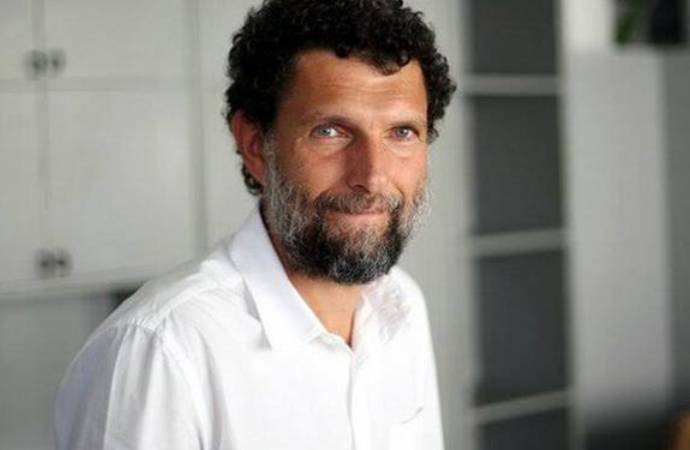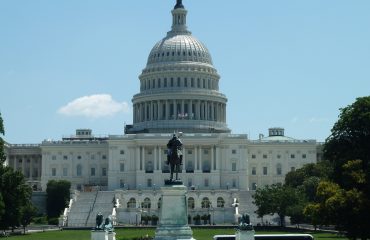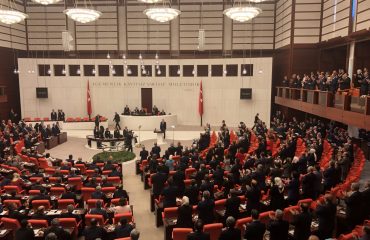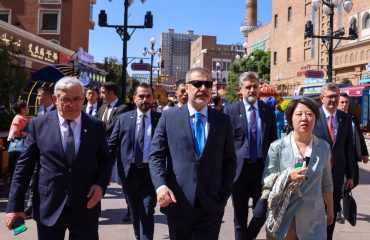

Istanbul court ruled philanthropist Osman Kavala’s four-year-long pre-trial detention to continue in a trial that has become a subject of diplomatic relations for Turkey.
Istanbul 13th Criminal Court ruled for the continuation of the detention of Kavala on Nov. 26 in a case that has been criticized as politically motivated and being under the influence of the ruling Justice and Development Party’s (AKP) execution. The case was adjourned to Jan. 17, 2022.
Osman Kavala, who has been in pre-trial detention for more than four years, is the sole imprisoned suspect in the case, where he and 52 other suspects are accused of “attempting to overthrow the government.” He faces two aggravated life sentences on charges of espionage and financing.
It is a re-trial of two different cases in which Kavala has previously released. The Court of Appeal overturned the verdicts of the local courts for that cases. They were re-opened and then merged with new accusations targeting Kavala.
European Court of Human Rights previously ruled that his detention was a violation; however, the courts kept him imprisoned. His prolonged imprisonment without verdict has become a subject of Ankara’s ties with the western world after Erdoğan accused ambassadors of 10 countries stirring a diplomatic debate in October.
Kavala refuses every accusation made against him, stating that the case is political in nature and aims to silence him and the opposition. Criticizing the court process, he refused to attend the second hearing on Nov. 26.
“There is no possibility for this trial to be fair,” he said.
Arrested in 2017, released, re-arrested
Osman Kavala was first arrested on Nov. 1, 2017, on charges of “attempting to overthrow the government or prevent it from doing its duty” and “attempting to overthrow the constitutional order by using force and violence,” alleging responsibility for the 2013 Gezi Park Protests and the Jul. 15 coup attempt.
Throughout the four years, the two cases, Gezi Park Protests and July 15, were ended with an acquittal. He was released twice and then again accused with different indictments with similar accusations, minor changes, and new charges, like espionage.
In 2021, the Court of Appeal overturned the two cases mentioned above. Following the re-opening of the cases, Gezi, coup attempt, espionage cases were combined.
Kavala appeared at the court on Oct. 8, 2021, for the first hearing of the merged case, and his detention prolonged.
Local courts resist ECHR decisions
The European Court of Human Rights ruled twice for both detentions that the local courts violated Kavala’s rights by arbitrary accusations and prolonged detention.
As the court resisted the ECHR decision and ruled for the detention, the Committee of Ministers of the Council of Europe, which is responsible for supervising the implementation of the ECtHR decisions, demanded Turkey to implement the ECHR decisions and release Osman Kavala in a statement on Sept. 16. Furthermore, they gave Turkey a timetable before their meeting between Nov. 30 and Dec. 2 2021.
The Committee warned that otherwise, they would initiate a violation procedure. If the violation procedure is initiated, the ECtHR has the right to take a sanction decision against Turkey.
The case of a diplomatic crisis
After the Committee’s demand, ambassadors from 10 Western countries have issued a statement backing the release of Kavala.
Criticizing the ambassadors of “intervening in domestic affairs,” President Recep Tayyip Erdoğan had stated that he would declare these ambassadors “persona non grata,” erupting a diplomatic crisis between 10 countries including USA, Germany and France.
“The European Court of Human Rights (ECtHR) gave a decision. They want to convict Turkey regarding this Soros leftover,” Erdoğan said in his statement on Oct. 23, referring to Kavala as the “leftover” of multi-billionaire philanthropist George Soros.
“I told our foreign minister that we can’t have the luxury to host those in our country,” he said, adding, “Do you release bandits, killers or terrorists in your country?”
The crisis subsided after the ambassadors’ social media statements.


